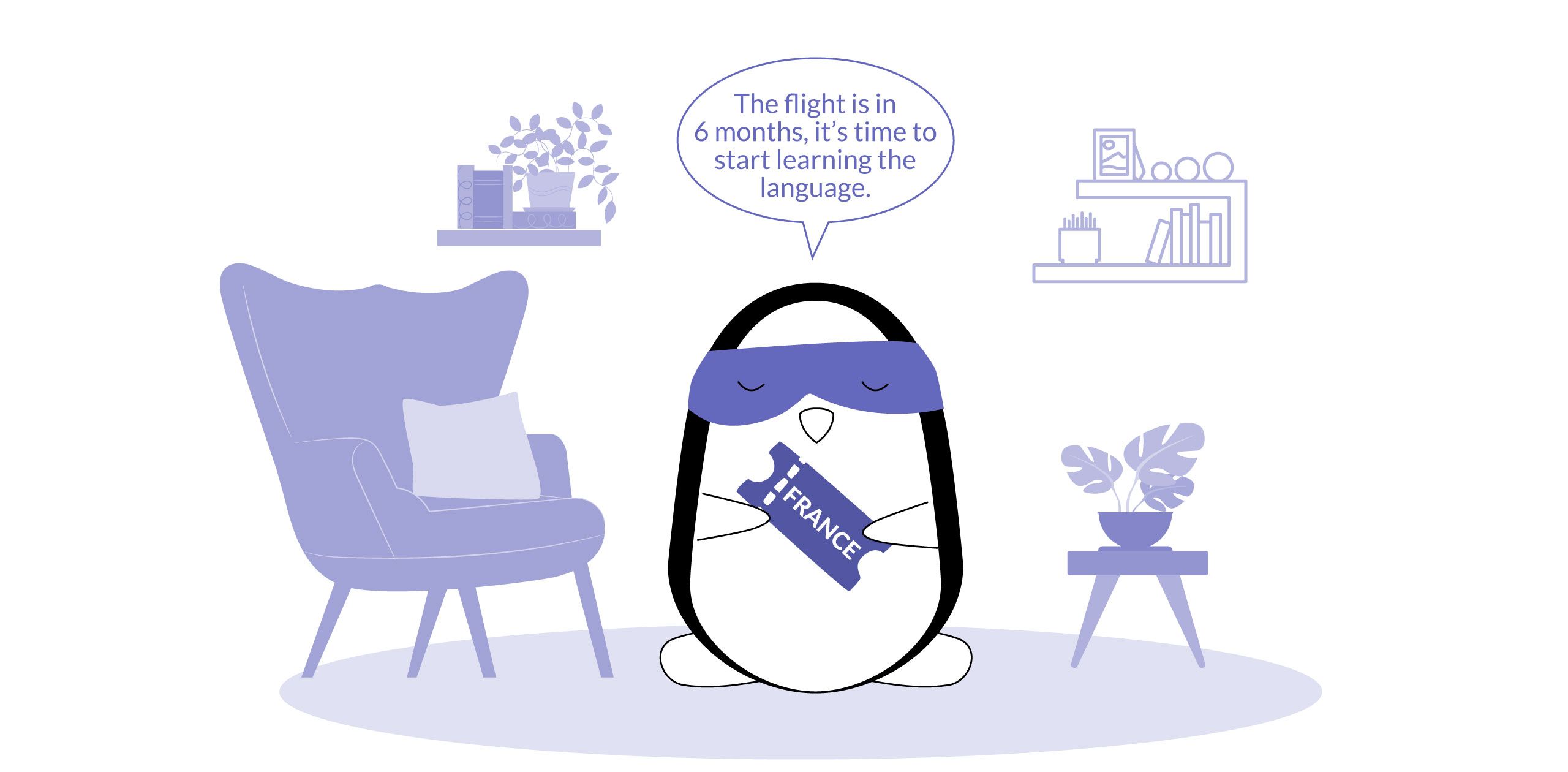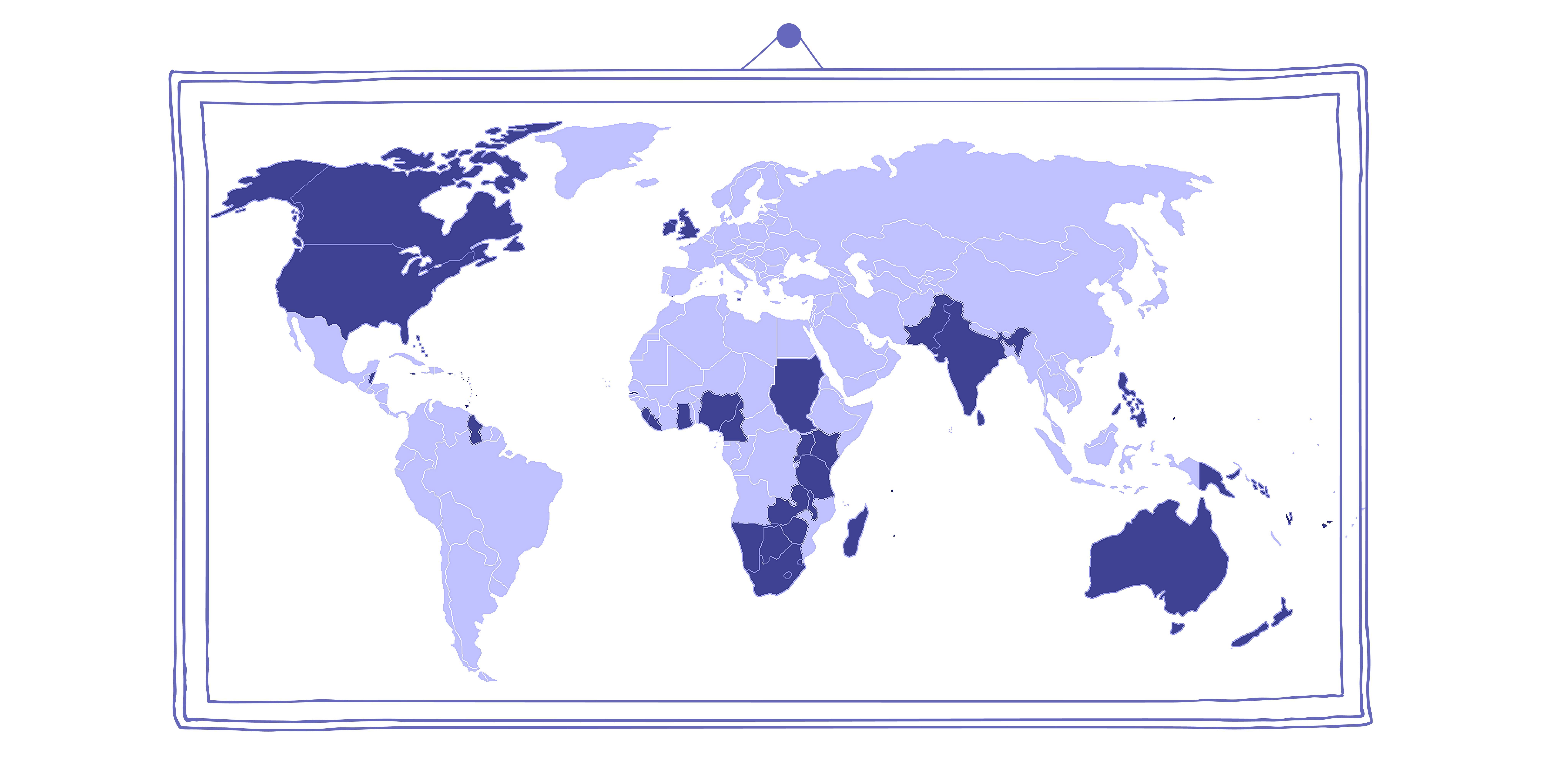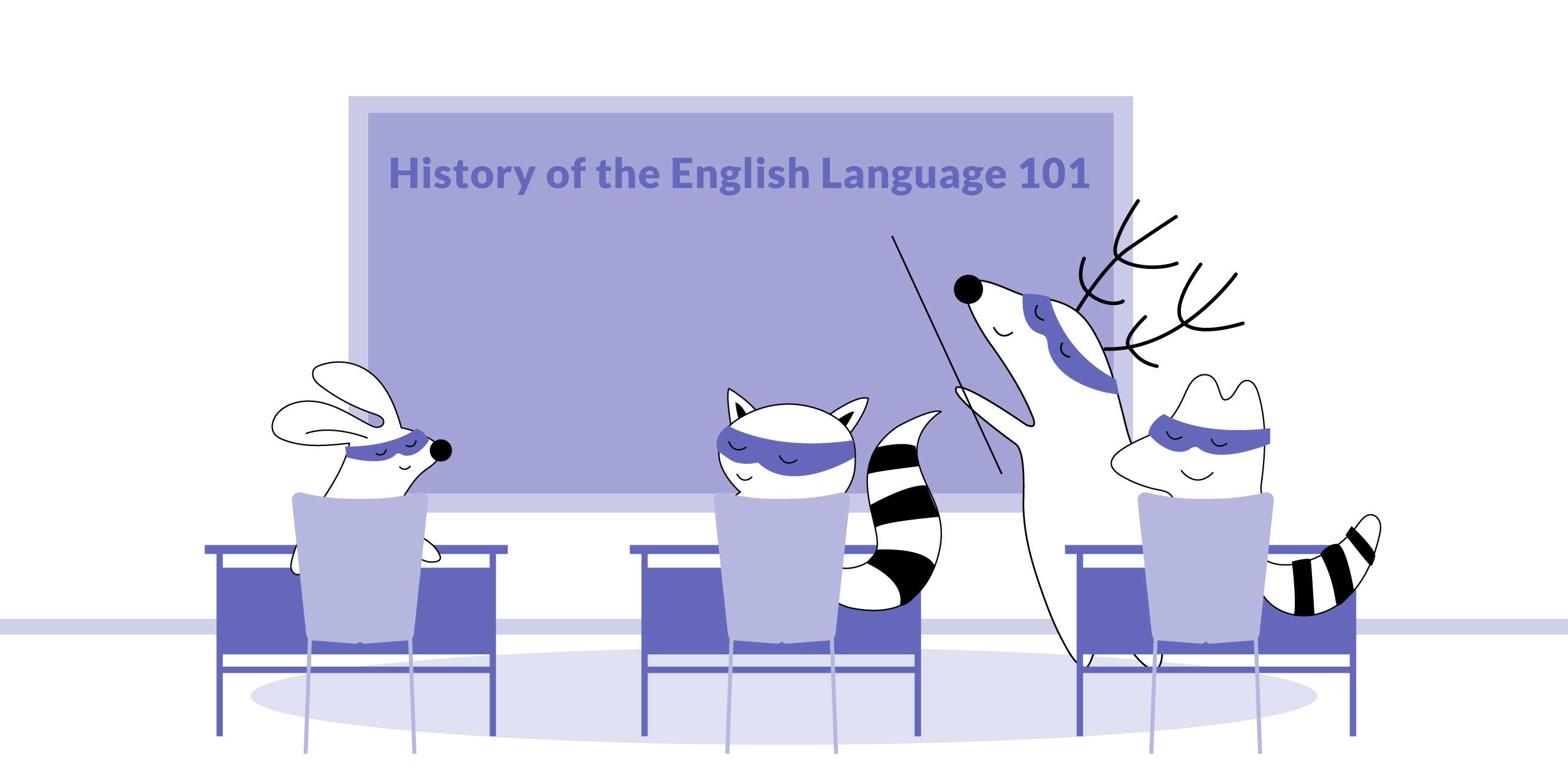
Today, English is one of the most common languages in the world, spoken by around 1.5 billion people globally. It is the official language of many countries, including the United Kingdom, the United States, Canada, Australia, and New Zealand.
English is also the lingua franca of international business and academia and is one of the six official languages of the United Nations.
Despite its widespread use, English is not without its challenges. Because it has borrowed words from so many other languages, it can be difficult to know how to spell or pronounce certain words. And, because there are so many different dialects of English, it can be hard to understand someone from a different region.
But, overall, English is a rich and flexible language that has adapted to the needs of a rapidly changing world. It is truly a global, dominant language – and one that shows no signs of slowing down. Join us as we guide you through the history of the English language.
Learn English with Langster
What Is the English Language, and Where Did It Come From?
The English language is a West Germanic language that originated in England. It is the third most spoken language in the world after Mandarin Chinese and Spanish. English has been influenced by a number of other languages over the centuries, including Old Norse, Latin, French, and Dutch.
The earliest forms of English were spoken by the Anglo-Saxons, who settled in England in the 5th century. The Anglo-Saxons were a mix of Germanic tribes from Scandinavia and Germany. They brought with them their own language, which was called Old English.
The Different Periods of the English Language
The English language has gone through distinct periods throughout its history. Different aspects of the language have changed throughout time, such as grammar, vocabulary, spelling, etc.
The Old English period (5th-11th centuries), Middle English period (11th-15th centuries), and Modern English period (16th century to present) are the three main divisions in the history of the English language.
Let's take a closer look at each one:
Old English Period (500-1100)
The Old English period began in 449 AD with the arrival of three Germanic tribes from the Continent: the Angles, Saxons, and Jutes. They settled in the south and east of Britain, which was then inhabited by the Celts. The Anglo-Saxons had their own language, called Old English, which was spoken from around the 5th century to the 11th century.
Old English was a Germanic language, and as such, it was very different from the Celtic languages spoken by the Britons. It was also a very different language from the English we speak today. It was a highly inflected language, meaning that words could change their form depending on how they were being used in a sentence.
There are four known dialects of the Old English language:
- Northumbrian in northern England and southeastern Scotland,
- Mercian in central England,
- Kentish in southeastern England,
- West Saxon in southern and southwestern England.
Old English grammar also had a complex system, with five main cases (nominative, accusative, genitive, dative, instrumental), three genders (masculine, feminine, and neuter), and two numbers (singular and plural).
The Anglo-Saxons also had their own alphabet, which was known as the futhorc. The futhorc consisted of 24 letters, most of which were named after rune symbols. However, they also borrowed the Roman alphabet and eventually started using that instead.
The vocabulary was also quite different, with many words being borrowed from other languages such as Latin, French, and Old Norse. The first account of Anglo-Saxon England ever written is from 731 AD – a document known as the Venerable Bede's Ecclesiastical History of the English People, which remains the single most valuable source from this period.
Another one of the most famous examples of Old English literature is the epic poem Beowulf, which was written sometime between the 8th and 11th centuries. By the end of the Old English period at the close of the 11th century, West Saxon dominated, resulting in most of the surviving documents from this period being written in the West Saxon dialect.
The Old English period was a time of great change for Britain. In 1066, the Normans invaded England and conquered the Anglo-Saxons. The Normans were originally Viking settlers from Scandinavia who had settled in France in the 10th century. They spoke a form of French, which was the language of the ruling class in England after the Norman Conquest.
The Old English period came to an end in 1066 with the Norman Conquest. However, Old English continued to be spoken in some parts of England until the 12th century. After that, it was replaced by Middle English.
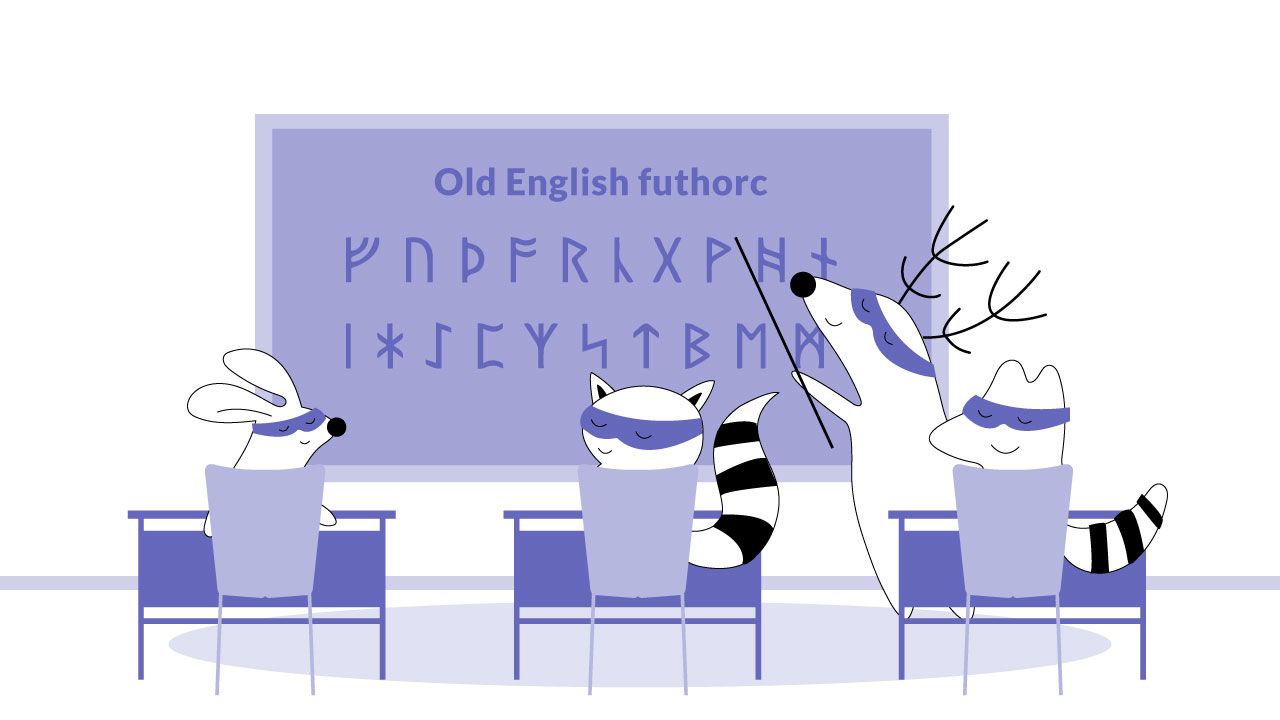
Middle English Period (1100-1500)
The second stage of the English language is known as the Middle English period, which was spoken from around the 12th century to the late 15th century. As mentioned above, Middle English emerged after the Norman Conquest of 1066, when the Normans conquered England.
As a result of the Norman Conquest, French became the language of the ruling class, while English was spoken by the lower classes. This led to a number of changes in the English language, including a reduction in the number of inflections and grammatical rules.
Middle English is often divided into two periods: Early Middle English (11th-13th centuries) and Late Middle English (14th-15th centuries).
Early Middle English (1100-1300)
The Early Middle English period began in 1066 with the Norman Conquest and was greatly influenced by French, as the Normans brought with them many French words that began to replace their Old English equivalents. This process is known as Normanisation.
One of the most noticeable changes was in the vocabulary of law and government. Many Old English words related to these concepts were replaced by their French equivalents. For example, the Old English word for a king was cyning or cyng, which was replaced by the Norman word we use today, king.
The Norman Conquest also affected the grammar of Old English. The inflectional system began to break down, and words started to lose their endings. This Scandinavian influence made the English vocabulary simpler and more regular.
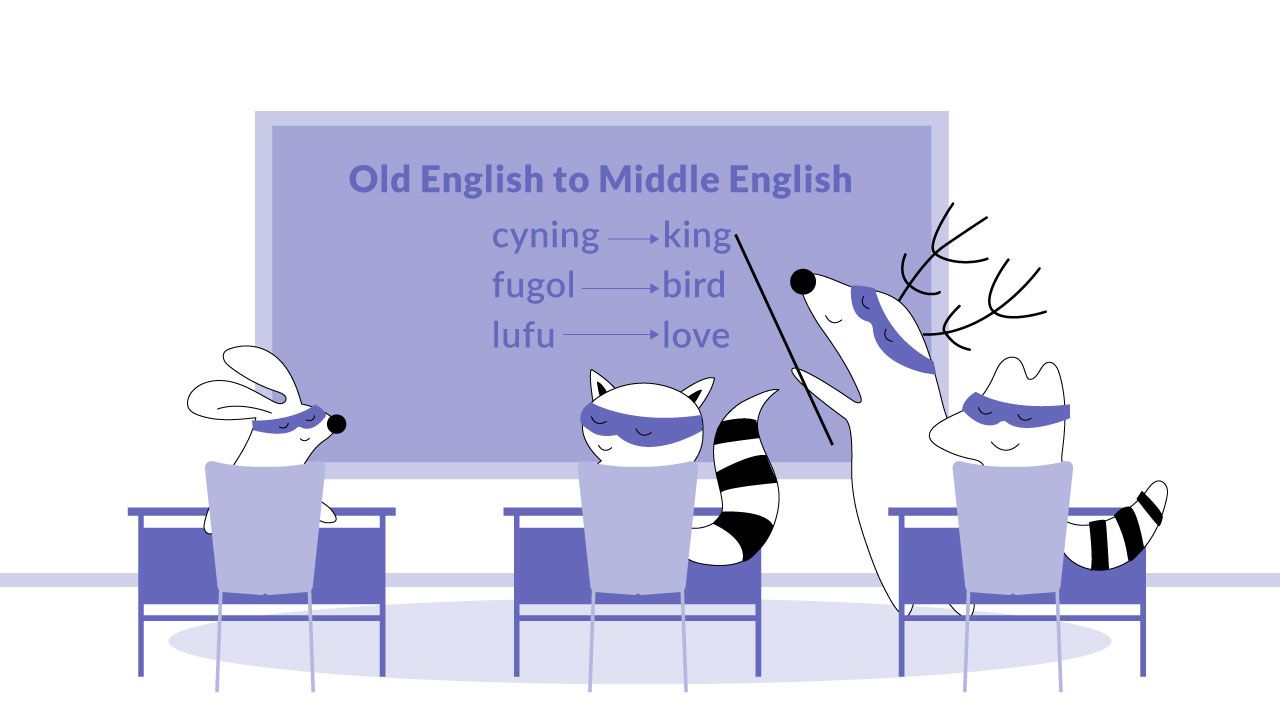
Late Middle English (1300-1500)
The Late Middle English period began in the 14th century and lasted until the 15th century. During this time, the English language was further influenced by French.
However, the Hundred Years’ War (1337-1453) between England and France meant that English was used more and more in official documents. This helped to standardize the language and make it more uniform.
One of the most famous examples of Middle English literature is The Canterbury Tales by Geoffrey Chaucer, which was written in the late 14th century. Chaucer was the first major writer in English, and he e helped to standardize the language even further. For this reason, Middle English is also frequently referred to as Chaucerian English.
French influence can also be seen in the vocabulary, with many French loanwords being introduced into English during this time. Middle English was also influenced by the introduction of Christianity, with many religious terms being borrowed from Latin.
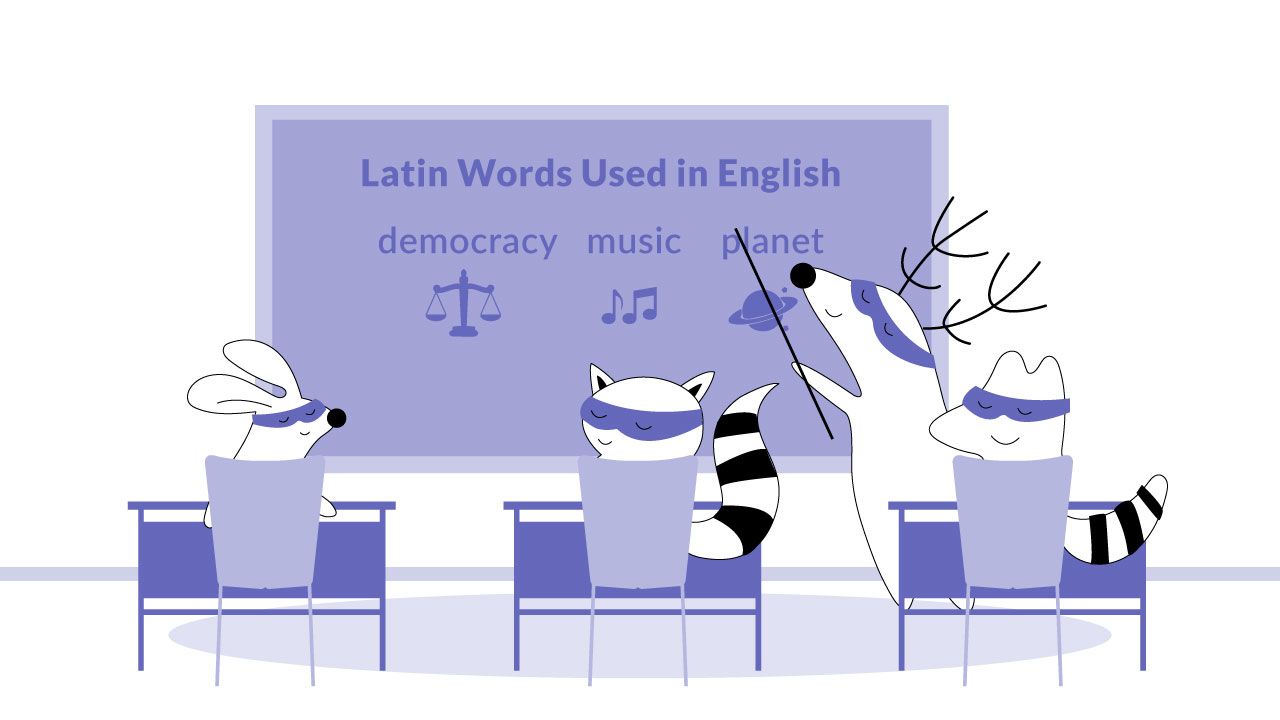
Modern English Period (1500-present)
After Old and Middle English comes the third stage of the English language, known as Modern English, which began in the 16th century and continues to the present day.
The Early Modern English period, or Early New English, emerged after the introduction of the printing press in England in 1476, which meant that books could be mass-produced, and more people learned to read and write. As a result, the standardization of English continued.
The Renaissance (14th-17th centuries) saw a rediscovery of classical learning, which had a significant impact on English literature. During this time, the English language also borrowed many Greek and Latin words. The first English dictionary, A Table Alphabeticall of Hard Words, was published in 1604.
The King James Bible, which was first published in 1611, also had a significant impact on the development of Early Modern English. The Bible was translated into English from Latin and Greek, introducing many new words into the language.
The rise of the British Empire (16th-20th centuries) also had a significant impact on the English language. English became the language of commerce, science, and politics, and was spread around the world by British colonists. This led to the development of many different varieties of English, known as dialects.
One of the most famous examples of Early Modern English literature is William Shakespeare's play Romeo and Juliet, which was first performed in 1597. To this day, William Shakespeare is considered the greatest writer in the English language.
The final stage of the English language is known as Modern English, which has been spoken from around the 19th century to the present day. Modern English has its roots in Early Modern English, but it has undergone several changes since then.
The most significant change occurred in the 20th century, with the introduction of mass media and technology. For example, new words have been created to keep up with changing technology, and old words have fallen out of use. However, the core grammar and vocabulary of the language have remained relatively stable.
Today, English is spoken by an estimated 1.5 billion people around the world, making it one of the most widely spoken languages in the world. It is the official language of many countries, including the United Kingdom, the United States, and Australia. English is also the language of international communication and is used in business, education, and tourism.
The Bottom Line

English is a fascinating language that has evolved over the centuries, and today it is one of the most commonly spoken languages in the world. The English language has its roots in Anglo-Saxon, a West Germanic language spoken by the Anglo-Saxons who settled in Britain in the 5th century.
The earliest form of English was known as Old English, which was spoken until around the 11th century. Middle English emerged after the Norman Conquest of 1066, and it was spoken until the late 15th century. Modern English began to develop in the 16th century, and it has continued to evolve since then.
If you want to expand your English vocabulary with new, relevant words, make sure to download our Langster app, and learn English with stories! Have fun!
Learn English with Langster







